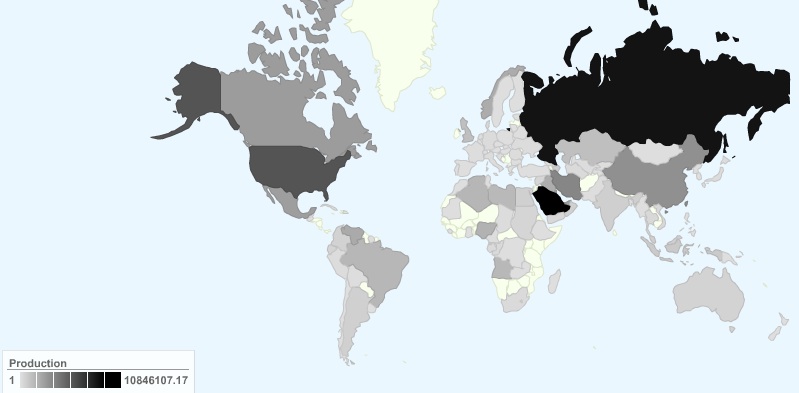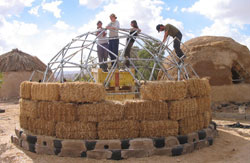Dr. Gotlieb comments on the disastrous effects of the oil spill in the US Gulf of Mexico and the dangers it portends for Israel’s emerging oil industry.
In a New York Times article entitled Our Fix-It Faith and the Oil Spill published this week, Elisabeth Rosenthal writes that “Americans have long had an unswerving belief that technology will save us — it is the cavalry coming over the hill, just as we are about to lose the battle. And yet, as Americans watched scientists struggle to plug the undersea well over the past month, it became apparent that our great belief in technology was perhaps misplaced.”
Ms. Rosenthal’s comment concerning the hemorrhaging of crude oil from the Deepwater Horizon oil rig in the Gulf of Mexico cuts to the bone with respect to the harm entailed by the blind use of technology. For Israel, where tycoon Yitzhak Tshuva’s Delek Group is drilling in the Tamar oil fields off our coast and other entrepreneurs are racing for a piece of the action, there is a burning question: Can we afford the sort of catastrophe that is already wreaking untold environmental disaster on the Louisiana coast? Are our coastlines so long and robust that they can withstand the kind of onslaught that the southeast United States is facing?
In the context of the Deepwater Horizon debacle, the effects could be devastating.
The Times reports on a “serious setback” in the attempts by British Petroleum (BP) to stanch the oil leak. The “top kill” technique which company officials said would stop the leakage did not succeed and other efforts are underway. This is the fourth technique to be applied by the company in tying to control what had already become the largest oil spill in US history, twenty years after the Exxon Valdez disaster in Alaska.
The leak began on April 20th when Deepwater Horizon exploded, killing eleven workers. According to the Times, 18-40 million gallons of oil has flowed into the Gulf of Mexico with an estimated 12-19,000 barrels leaking into the sea each day.
Despite attempts to keep the oil slick from reaching the fragile ecosystems of the Louisiana coast, oil has already washed ashore. The US National Oceanographic and Atmospheric Administration (NOAA) has already banned commercial fishing in the affected southeast coastal area.
The fishing communities of the Louisiana coast are reeling from the economic and social effects of the disaster, which threatens their way of life: They are mindful that the coastal communities of Alaska have still not recovered from the Valdez disaster. Marine animals and birds are also among the victims of the disaster. Ecosystems are endangered.
It is now believed that only the drilling of two relief wells, which will not be completed until August can provide effective relief. What the environmental toll of this human-made disaster will be by then is immeasurable at this time.
An example for the Middle East?
Recent reports show that Israel has among the lowest royalty rates of any country with respect to how much oil companies pay the state for extracting mineral stocks. The Netanyahu government, with its free market advocacy, has not taken steps to change this situation: The government has left the business environment very conducive for the extraction of fossil fuels off our coast, a gift for big business.
In terms of Middle East history, it is insightful to ask whose interests are truly served by such the petroleum industry and its associated adventures. Much of the political discord in the region stems from the gerrymandering of the area in a manner that postcolonial states and the elites that govern them would further the strategic affairs of the European powers and the corporate interests of the oil industry. The strategy has left a state system in the region based on economies that fuel climate change while filling the corporate coffers of the Seven Sisters (of which BP is one), the major oil conglomerates that have dominated the energy industry for nearly a century.
The failure of technology at Deepwater Horizon and its inability to remediate the consequences are indicative of the dangers inherent to blind faith in technological fixes for environmental problems. The implications for Israelis and others interested in preserving a future for our progeny should be clear: Placing the fate of the commons in the hands of private economic interests is ridden with risk.
Read more on oil spills and the Middle East:
Method To Seal Kuwait Spill Could Work on Gulf Oil Spill
Will Gulf Of Mexico Oil Spill Open Pandora’s Box on Oil Sands Drilling?
Kuwait Still Cleaning up After Saddam’s Mess
Russian Vessel Fined for Dumping Oil Bilge into Red Sea
Above image: see what nations of the world are producing the most oil. Via Digital_Dreams




